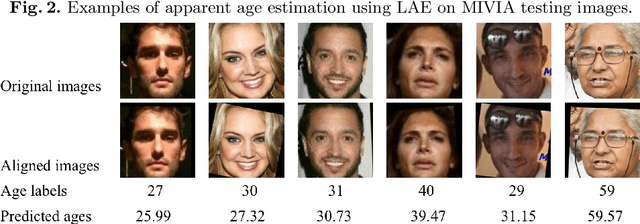LAE : Long-tailed Age Estimation
Paper and Code
Oct 25, 2021



Facial age estimation is an important yet very challenging problem in computer vision. To improve the performance of facial age estimation, we first formulate a simple standard baseline and build a much strong one by collecting the tricks in pre-training, data augmentation, model architecture, and so on. Compared with the standard baseline, the proposed one significantly decreases the estimation errors. Moreover, long-tailed recognition has been an important topic in facial age datasets, where the samples often lack on the elderly and children. To train a balanced age estimator, we propose a two-stage training method named Long-tailed Age Estimation (LAE), which decouples the learning procedure into representation learning and classification. The effectiveness of our approach has been demonstrated on the dataset provided by organizers of Guess The Age Contest 2021.
 Add to Chrome
Add to Chrome Add to Firefox
Add to Firefox Add to Edge
Add to Edge